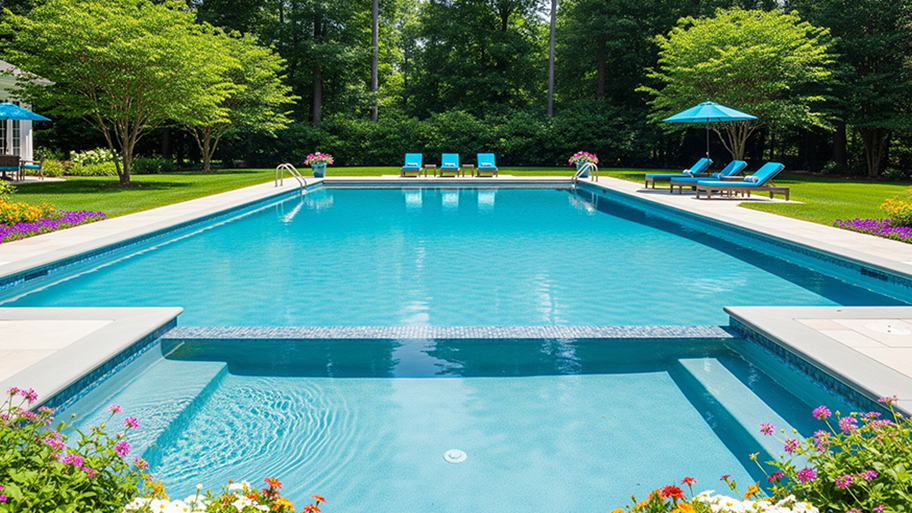
Removing a pool is a labor-intensive job, but the investment can be worth it. Use this pool removal cost guide to estimate how much you’ll pay for the service.
Create a maintenance plan that matches your lifestyle


Pool owners usually spend around an hour or two on pool maintenance every week. If you’d rather take a dip than roll up your sleeves, it’s a good idea to hire a pro. Since professional maintenance services vary depending on the situation, your technician will want to discuss some pool maintenance questions before they begin.
There are a range of different pool maintenance tasks, so your technician will need to know what kind of service you’re looking for. Do you want a standard service, where they’ll clean your pool and balance the water? Do you need someone to open your pool or swap out pool filters? Are you having an issue with one of the components and need a repair?
Talk to your local pool technician about timing. They’ll need to fit you into their schedule, so let them know if it’s an emergency (like a large leak or malfunctioning pump) or something that can be scheduled a few weeks out (like pool opening or closing). This way, there are no surprise visits.
Outside of needing one-off repairs, some people hire pool technicians for repeat maintenance throughout the swim season. You’ll need to discuss a schedule, whether it’s weekly, twice a week, or twice a month. It depends on how much you use your pool.
If you’re not doing it on your own, you should bring in a pro to balance pool chemicals at least once a week. You may need more frequent services during the height of summer, if you’re using your pool often, or after a party.
Before you can hire a pool technician, they’ll need to know what kind of pool you have. The main reason is that different pools have different maintenance needs. You’ll maintain a saltwater or natural pool differently than a chlorine pool.
Your technician will need to know what your pool is made of. This is because different materials require slightly different methods of care. For example, since concrete pools are porous, they’re more susceptible to algae growth. You’ll need to clean them and balance the chemicals more frequently. Vinyl-lined pools, on the other hand, are more susceptible to damage from high chlorine.
When temperatures start to drop, you’ll need to figure out a winterization plan for your pool. Pool closing requires a list of specific maintenance tasks that protect your pool from freezing temperatures. This includes adding winter chemicals, lowering the water level, and using pool antifreeze. Ask your pro for the best way to proceed.
From average costs to expert advice, get all the answers you need to get your job done.

Removing a pool is a labor-intensive job, but the investment can be worth it. Use this pool removal cost guide to estimate how much you’ll pay for the service.

Pool inspections are crucial when buying a home with a pool, spa, or hot tub. Learn how much a pool inspection costs and how potential problems are diagnosed.

Lap pools are a great option if you're more interested in exercising than hanging out on a floatie. Learn all about lap pool costs in this guide.

Elevate your swimming experience with a DIY pool heater. This guide includes four methods for using the sun's energy to warm your water.

Baking soda is a budget-friendly way to tackle DIY pool maintenance. Our guide explains how to add baking soda to a pool.

The key to maintaining an aboveground pool is using the right tools and chemicals for the job. Use this guide to learn how to clean an aboveground pool.